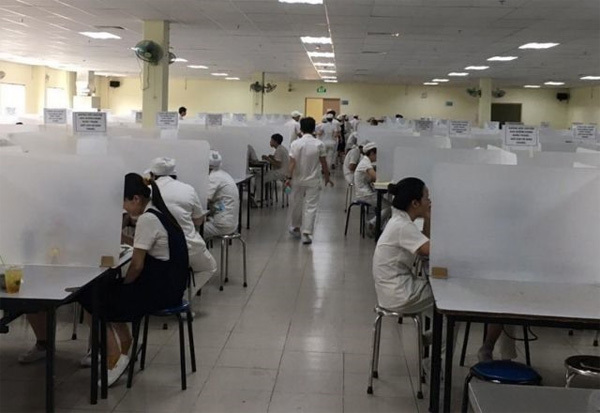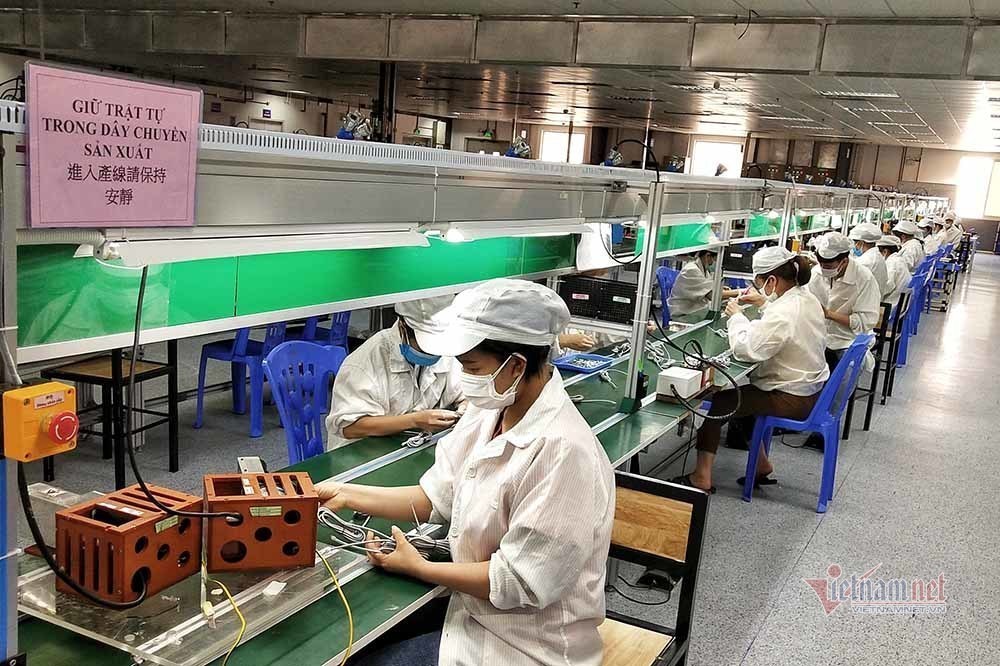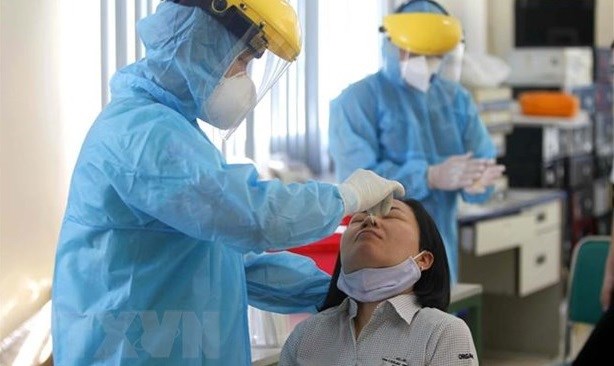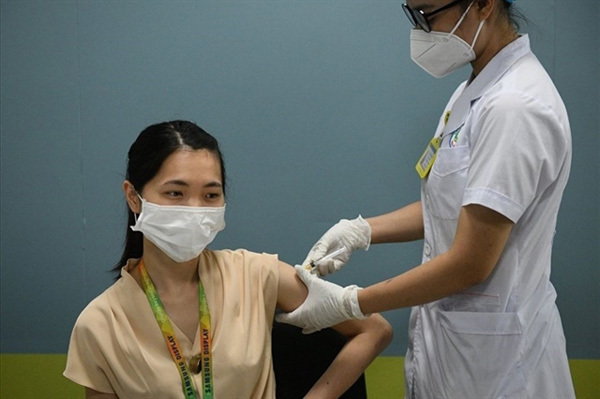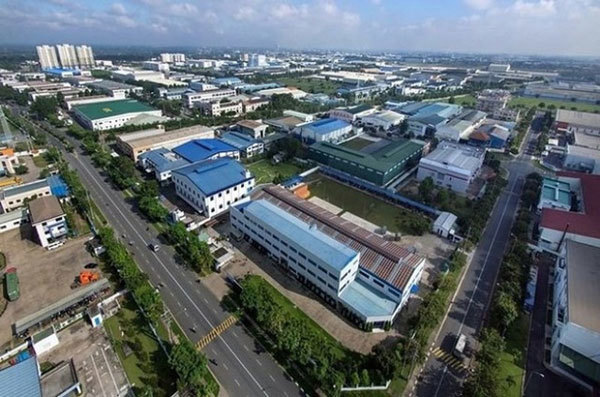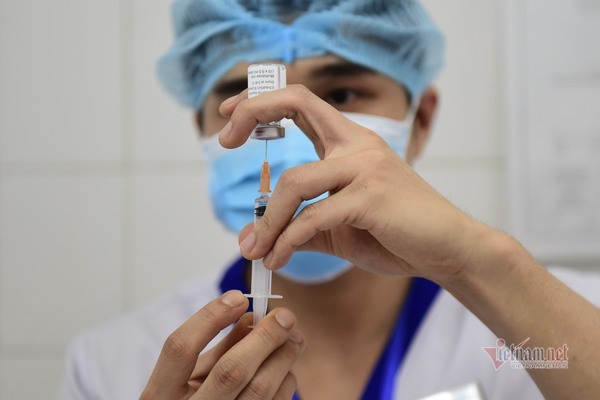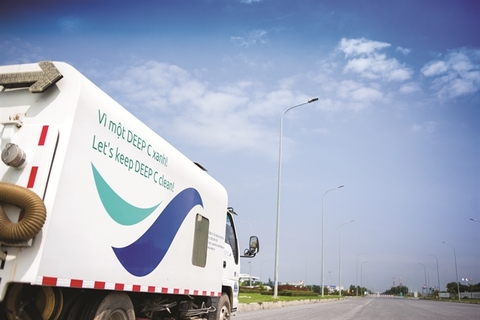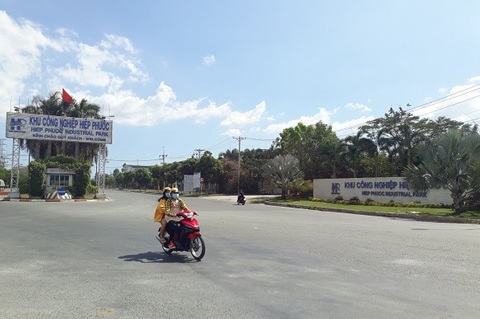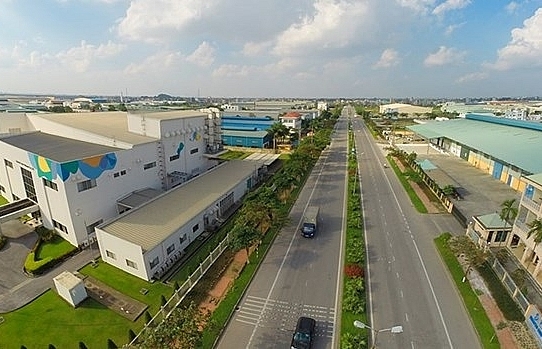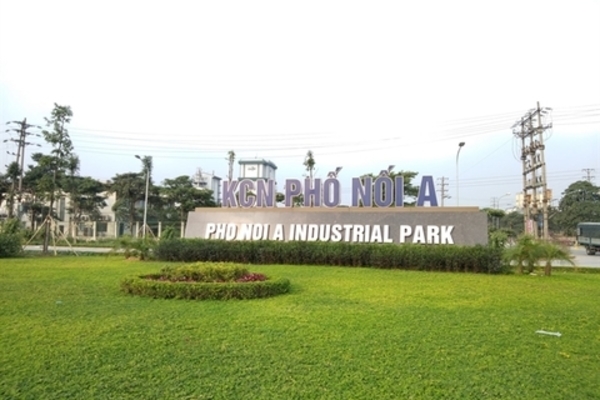- © Copyright of Vietnamnet Global.
- Tel: 024 3772 7988 Fax: (024) 37722734
- Email: evnn@vietnamnet.vn
industrial parks
Update news industrial parks
Experts identify new trends in the development of IPs
The impacts of the COVID-19 pandemic have slowed down the operations of businesses in industrial parks (IP), disrupting supply chains and labour, according to a recent report by the Ministry of Planning and Investment (MPI).
Bac Giang: 120,000 workers to return to work by October
Bac Giang provincial authorities aim to have 120,000 workers return to work in Industrial Zones by October 2021.
Vietnam racing against time to protect industrial parks from COVID-19
Vietnam’s count of COVID-19 cases has crossed the milestone of 10,000 more than a month after the resurgence of the virus began in late April, wreaking havoc on multiple major industrial parks where thousands of factory workers have become infected.
Vietnam to protect production at industrial parks
The fourth wave of COVID-19 has changed the routines of many people working in industrial parks (IPs) in northern Vietnam.
IPs set up, but Vietnam still needs to do more to attract investors
There were positive developments of industrial parks in Vietnam in the first five months of the year, but experts still say the country should do more to attract big investors.
300,000 workers in two provinces to receive Covid-19 vaccinations
The two northern provinces of Bac Giang and Bac Ninh, Vietnam’s largest Covid-19 hotspots, have received 300,000 doses of vaccine for 300,000 workers in industrial parks. Vaccinations started on May 27.
Industrial park developers promote sustainability to attract “eagles”
Vietnam has witnessed a growth in the arrival of global high-tech brands like Pegatron, Universal Scientific Industrial, Foxconn.
HCM City’s EPZs, IPs attract over $747.6 million in 2020
Over $747.6 million were poured into export processing zones (EPZs) and industrial parks (IPs) in Ho Chi Minh City in 2020, representing a year-on-year increase of 15.79 percent.
Production shift from China to Vietnam set to increase demand for industrial parks
With the current minimum wage of US$132-190 per month, Vietnam has been listed in the top three ASEAN countries having the lowest labor cost.
HCM City hopes to attract investment by allotting more lands in IPs, EPZs for infrastructure
HCM City authorities plan to offer competitive land rents and other incentives at industrial parks (IPs) and export processing zones (EPZs), and earmark more lands for building infrastructure to attract investment.
HCM City reaches 12 of 18 pollution-reduction goals
HCM City has reached 12 of its 16 targets in its pollution reduction programme for the 2016-20 period, according to the city’s Department of Natural Resources and Environment.
Massive IP development worrisome
In anticipation of the investment shift driven by the Covid-19 epidemic and the Sino-U.S. trade war, multiple industrial real estate developers are rolling up sleeves with their investment.
HCM City’s IPs, EPZs let down by lack of infrastructure
 Many industrial parks and export processing zones in HCM City lack sufficient infrastructure since authorities’ failure to pay compensation for lands has meant they have been unable to acquire and clear them.
Many industrial parks and export processing zones in HCM City lack sufficient infrastructure since authorities’ failure to pay compensation for lands has meant they have been unable to acquire and clear them.
IZs development needs planning to attract FDI
 The development of industrial zones (IZs) needs a comprehensive plan to capture the transition of the foreign direct investment (FDI) inflow spurred by trade wars and the COVID-19 pandemic
The development of industrial zones (IZs) needs a comprehensive plan to capture the transition of the foreign direct investment (FDI) inflow spurred by trade wars and the COVID-19 pandemic
VN needs to change its ways to attract FDI leaving China: experts
 Vietnam has some great advantages while competing with regional countries in attracting capital flows moving out of China after the COVID-19 pandemic, experts have said.
Vietnam has some great advantages while competing with regional countries in attracting capital flows moving out of China after the COVID-19 pandemic, experts have said.
Experts: industrial real estate faring well in 2020
 Foreign investors are planning to expand their operations in Vietnam this year, creating an opportunity for industrial property development despite the COVID-19 pandemic, according to experts.
Foreign investors are planning to expand their operations in Vietnam this year, creating an opportunity for industrial property development despite the COVID-19 pandemic, according to experts.
Industrial parks forecast lower profits due to pandemic
 Industrial park owners are forecasting a drop in 2020 profits, blaming the ongoing damage inflicted by the novel coronavirus outbreak.
Industrial park owners are forecasting a drop in 2020 profits, blaming the ongoing damage inflicted by the novel coronavirus outbreak.
Industrial and logistics real estate faces bountiful year
 Last year was another record year for industrial and logistics real estate in Vietnam when foreign direct investment (FDI) into manufacturing remained positive.
Last year was another record year for industrial and logistics real estate in Vietnam when foreign direct investment (FDI) into manufacturing remained positive.
Leasing demand in Vietnam’s industrial parks remains strong
 During the first nine months of 2019, industrial park companies achieved impressive business results, especially developers who own large-scale land banks for lease.
During the first nine months of 2019, industrial park companies achieved impressive business results, especially developers who own large-scale land banks for lease.
Economic zone draws investment from the manufacturing sector
 Industrial property in the Northern Key Economic Zone (NKEZ) saw strong development in the third quarter of this year, according to Jones Lang LaSalle firm (JLL Viet Nam).
Industrial property in the Northern Key Economic Zone (NKEZ) saw strong development in the third quarter of this year, according to Jones Lang LaSalle firm (JLL Viet Nam).
